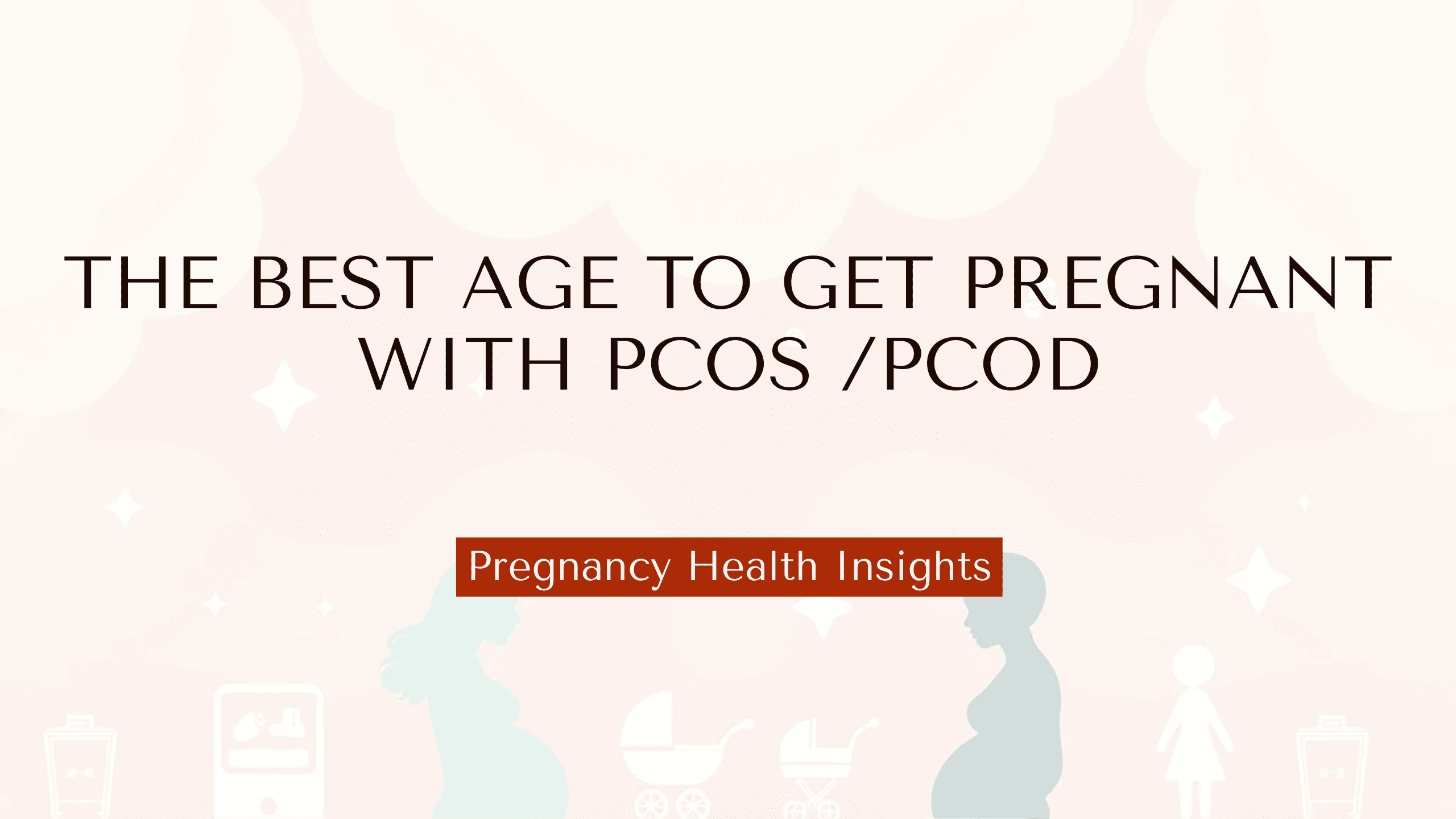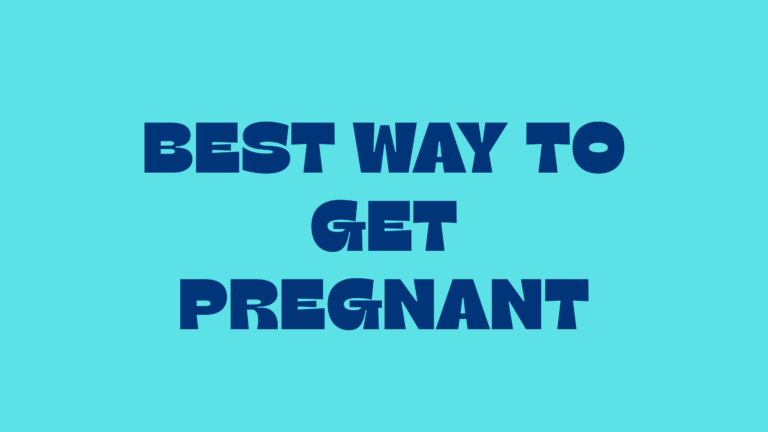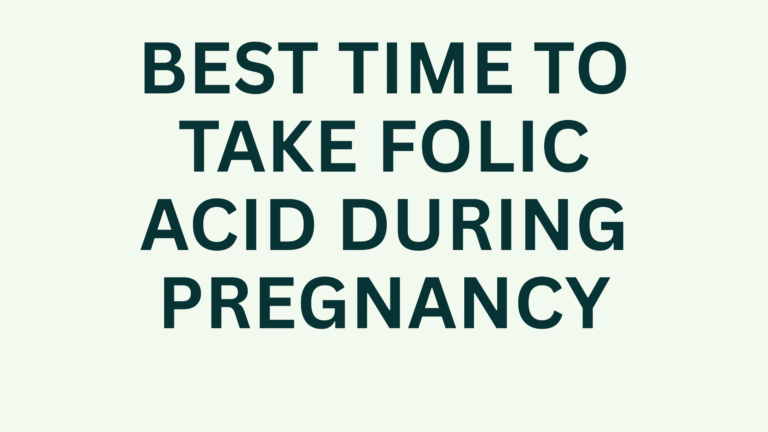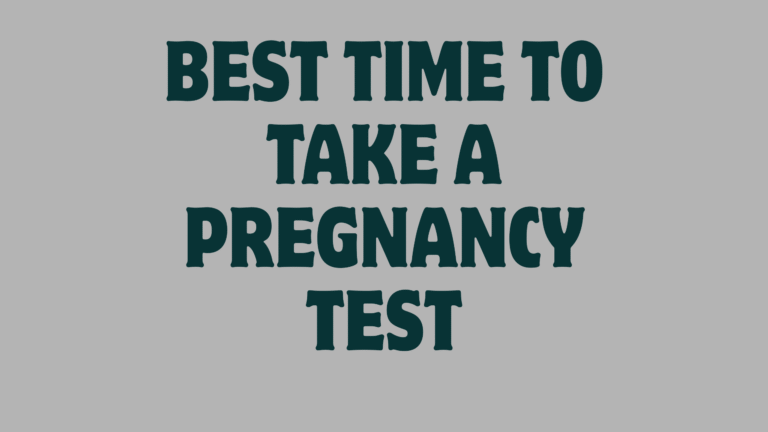
best age to get pregnant with PCOS
The best age to get pregnant with PCOS is an important question for many women across the United States. Polycystic Ovary Syndrome (PCOS) is one of the leading causes of infertility, affecting nearly 1 in 10 women of childbearing age. While PCOS makes conception more challenging, many women still have healthy pregnancies. The timing, however, matters a lot. Knowing the right age window for pregnancy with PCOS can improve success rates, reduce complications, and give you more control over family planning.
Understanding PCOS and Its Impact on Fertility
Before discussing the best age to get pregnant with PCOS, it’s important to understand how this condition works.
PCOS is a hormonal imbalance that disrupts ovulation. Instead of releasing eggs regularly, ovaries may produce small fluid-filled sacs (cysts) that prevent ovulation. This irregularity makes it harder to conceive naturally. PCOS is also linked to insulin resistance, obesity, and elevated androgens (male hormones), all of which further complicate fertility.
Unlike women without PCOS, fertility challenges for women with PCOS are not only about age decline but also about managing hormonal and metabolic health. That’s why identifying the right age window combined with treatment is crucial.
Fertility in Women with PCOS by Age
Pregnancy in the 20s with PCOS – Best age to get pregnant with PCOS
For most women, the 20s are considered the biological prime for pregnancy. For women with PCOS, this period is especially valuable.
Egg quality and ovarian reserve are usually higher.
Women are more responsive to ovulation-inducing drugs like Clomid or Letrozole.
Risks of miscarriage, gestational diabetes, and high blood pressure are lower than at later ages.
Lifestyle changes like weight loss and exercise often show quicker results on fertility in this decade.
Thus, many doctors recommend that the best age to get pregnant with PCOS is during the 20s, if life circumstances allow.
Pregnancy in the 30s with PCOS
Fertility naturally declines in the 30s, and with PCOS, the decline may be more noticeable. However, many women with PCOS successfully conceive in this age group with proper care.
Early 30s are still considered favorable for conception with PCOS, especially with assisted treatments.
Risks of complications like gestational diabetes and preeclampsia increase.
IVF success rates are still good in the early 30s but start dropping after 35.
Emotional readiness, financial stability, and better medical support are advantages at this age.
If you have PCOS and are planning pregnancy in your 30s, early intervention with fertility specialists is important.
Pregnancy After 35 with PCOS
The later reproductive years bring greater challenges for women with PCOS.
Fertility sharply declines after 35, and PCOS-related ovulation issues compound the problem.
Egg quality reduces, and risk of chromosomal abnormalities (like Down syndrome) increases.
Miscarriage rates and pregnancy complications such as gestational diabetes are significantly higher.
Advanced fertility treatments like IVF, ICSI (Intracytoplasmic Sperm Injection), or donor eggs are often needed.
While pregnancy is still possible, it requires careful planning, close monitoring, and sometimes more aggressive medical support.
Why Age Matters More with PCOS
For women without PCOS, fertility gradually declines with age. For women with PCOS, fertility is already compromised due to irregular ovulation. As age advances, two challenges overlap: the hormonal imbalance of PCOS and the natural decline of egg reserve and quality.
This combination is why the best age to get pregnant with PCOS tends to be earlier than for women without PCOS. Doctors often recommend planning pregnancy before 35 to maximize chances of success.
Medical Treatments That Support Pregnancy with PCOS
The good news is that medical science offers several options for women with PCOS at different ages:
In your 20s: Ovulation induction medications like Clomid or Letrozole are often effective.
In your early 30s: Fertility treatments like IUI (Intrauterine Insemination) are often added.
After 35: IVF or even egg freezing/donor eggs may be recommended.
Because PCOS is linked with insulin resistance, drugs like Metformin may also help regulate cycles and improve ovulation.
Lifestyle and Age-Dependent Fertility Success
Lifestyle plays a huge role in PCOS pregnancies. The best age to get pregnant with PCOS is not only about numbers, but also about how well you manage your health.
Women in their 20s who adopt healthy habits often restore ovulation faster.
In the 30s, weight management and insulin control become even more critical.
After 35, lifestyle changes can still help, but medical interventions are usually necessary alongside.
Key habits include:
Weight control (losing even 5–10% body weight can improve fertility).
Balanced diet (low sugar, high fiber, protein-rich meals).
Regular exercise.
Stress management (yoga, mindfulness).
Risks of Pregnancy with PCOS at Different Ages
20s: Lower risk but still higher than non-PCOS women for gestational diabetes.
30s: Moderate increase in hypertension, preeclampsia, and miscarriage.
After 35: Significant increase in complications, especially if unmanaged.
This highlights why age combined with proactive management is so critical.
Emotional Readiness and Support
While the best age to get pregnant with PCOS often comes down to biology, emotional and social factors matter too. PCOS can cause anxiety, self-esteem issues, and stress about fertility. Women who feel mentally prepared, supported by their partners, and financially stable often cope better with treatment and pregnancy challenges.
Internal Link for More Guidance
For additional resources on pregnancy planning, fertility, and early pregnancy health, check the Pregnancy Advice section on PregnancyKIT. It offers practical guides for women at different stages of their fertility journey.
Defining the Best Age for You
The best age to get pregnant with PCOS is usually in your 20s to early 30s, when egg quality is higher and treatments are more effective. After 35, pregnancy is still possible but comes with greater challenges and risks.
Ultimately, the best age is not only about biology but also about health management, emotional readiness, and access to medical care. With today’s fertility treatments and lifestyle adjustments, women with PCOS can successfully achieve pregnancy at different ages.
About The Author
JYO JOURNEY
PregnancyKit – to provide real, honest, and easy-to-understand information for women who might be wondering, “Am I pregnant?” or “What should I expect now?” Every guide I write is based on what we wished we had known during our own journey.
Through PregnancyKit, I want to help women feel supported, informed, and confident from the very first symptom. Because I believe every woman deserves clarity, care, and a little less stress during one of the most important journeys of her life.



4 thoughts on “The best age to get pregnant WITH PCOS”